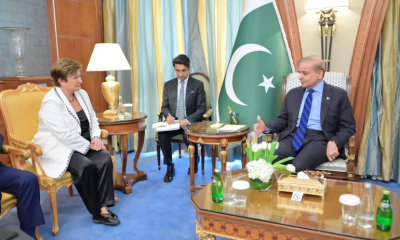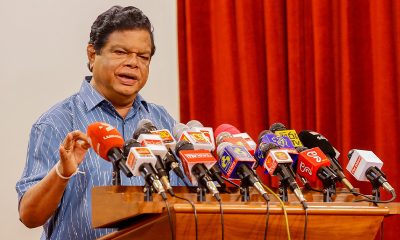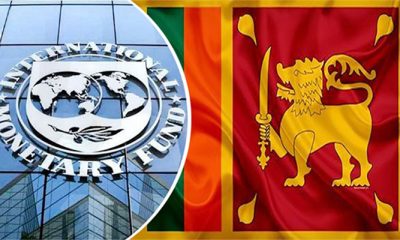Business
Sri Lanka still ‘under test’ before it can receive crucial second tranche from IMF

by Sanath Nanayakkare
International Monetary Fund (IMF) staff concluding their visit to Sri Lanka yesterday reaffirmed their support to Sri Lanka to move out of the ongoing economic crisis, but did not specify an exact timeline for releasing the second tranche of its Extended Fund Faculty (EFF) arrangement to Sri Lanka.
The IMF mission team led by Peter Breuer and Katsiaryna Svirydzenka that visited Colombo from September 14 to 27, is yet to be convinced that it has received a robust programme from the Sri Lankan authorities where they indicate how they would be addressing the persistent revenue shortfall besides outlining progress in foreign debt restructuring which would give Sri Lanka a breather to balance its financing requirements as it starts to repay its foreign debt.
“We had constructive and productive discussions with the Sri Lankan authorities on economic performance and policies underpinning the first review under the IMF Extended Fund Facility (EFF) arrangement. The people of Sri Lanka have shown remarkable resilience and the authorities have made significant progress on important reforms. The discussions will continue towards reaching a staff-level agreement in the near term that will maintain the reform momentum needed to allow Sri Lanka to emerge from its deep economic crisis, Peter Breuer said.
“The objectives of the IMF-supported program will continue to focus on restoring macroeconomic stability and debt sustainability, while protecting the poor and vulnerable, safeguarding financial stability and stepping up structural reforms to address corruption vulnerabilities and unlock Sri Lanka’s growth potential, he said.
However, the press briefing given by the IMF team yesterday signaled that they needed to see more economic and financial policies to support the approval of the First Review of the program under the EFF arrangement.
“Sri Lanka has made commendable progress in implementing difficult but much-needed reforms. These efforts are bearing fruit as the economy is showing tentative signs of stabilization. Inflation is down from a peak of 70 percent in September 2022 to below 2 percent in September 2023, gross international reserves increased by $1.5 billion during March-June this year, and shortages of essentials have eased. Despite early signs of stabilization, full economic recovery is not yet assured. Growth momentum remains subdued, with real GDP contracting by 3.1 percent in the second quarter on a year-on-year basis and high-frequency economic indicators continuing to provide mixed signals. Reserve accumulation has slowed in recent months, he said.
Speaking further Peter Breuer said: “Sustaining the reform momentum is critical to put the economy on a path towards lasting recovery and stable and inclusive economic growth. The authorities have met the program’s primary balance targets and remain committed to this important pillar of the program so as to support their efforts to restore debt sustainability. However, revenue mobilization gains – while improved relative to last year – are expected to fall short of initial projections by nearly 15 percent by year end, in part due to economic factors.
“The onus of fiscal adjustment would fall on public expenditure if there were no efforts to recoup this shortfall. This could weaken the government’s ability to provide essential public services and undermine the path to debt sustainability. To increase revenues and signal better governance, it is important to strengthen tax administration, remove tax exemptions, and actively eliminate tax evasion.
“Against continued uncertainty, it also remains important to rebuild external buffers through strong reserves accumulation. Building on the Central Bank of Sri Lanka’s success in controlling inflation, refraining from monetary financing will help keep inflation in check. Other challenges include maintaining cost recovery in electricity pricing.
“The government has made steady progress on structural reforms. Key legislations passed in Parliament, including the new Central Bank Act and the Anti-Corruption Act, could improve governance if implemented effectively. The IMF Governance Diagnostic report would inform future reform measures to strengthen governance when published.
“A new welfare benefit payment scheme was enacted with new eligibility criteria that aims to improve targeting, adequacy, and coverage of social safety nets. To ensure financial stability, steps were taken on conducting bank diagnostics, developing a roadmap for addressing banking system capital and liquidity shortfalls and improving the bank resolution framework.
“The authorities have also made headway on regaining debt sustainability through the execution of the domestic debt restructuring and advancing discussions with external creditors. As Sri Lanka is restructuring its public debt which is in arrears.
“Executive Board approval of the first program review requires the completion of financing assurances reviews. These financing assurances reviews will focus on whether adequate progress has been made with debt restructuring to give confidence that it will be concluded in a timely manner and in line with the program’s debt targets.
“Discussions are on-going, and the authorities are continuing to make progress on their plans for revenue mobilization targets, anti-corruption efforts, and other important structural reforms.”
The IMF team held meetings with President and Finance Minister Ranil Wickremesinghe, Central Bank of Sri Lanka Governor Dr. P. Nandalal Weerasinghe, State Minister Shehan Semasinghe, Chief of Staff to the President Sagala Ratnayaka, Secretary to the Treasury K M Mahinda Siriwardana, and other senior government and CBSL officials, during the visit. The IMF team also met with parliamentarians, representatives from the private sector, civil society organizations, and development partners.
Business
Ceylon Chamber partners with members and relief agencies to deliver Cyclone Ditwah relief
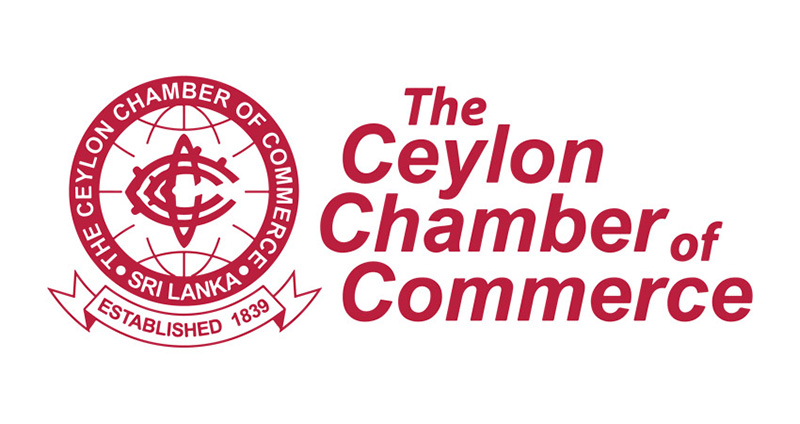
In response to the devastating impact of Cyclone Ditwah, The Ceylon Chamber of Commerce has been actively supporting national relief and recovery operations in collaboration with the Government of Sri Lanka, key partners, and its members.
As a co-chair of the Sri Lanka Preparedness Partnership (SLPP) alongside the Disaster Management Centre (DMC), the Ceylon Chamber together with Janathakshan, played a central role in coordinating emergency response efforts, ensuring rapid and efficient assistance to affected communities. From 28 November to 6 December 2025, the Chamber mobilised volunteers across the Chamber Secretariat, member companies MAS Capital Pvt. Ltd – Intimates Division, Aitken Spence PLC, and university student groups, contributing more than 190 hours of service and answering over 40,000 emergency assistance requests to support the DMC’s 24-hour Emergency Operations Center.
The Chamber also provided support to the DMC for the Rapid Disaster Needs Assessment (RDNA), assisting with data analysis of calls received and the development of the direct community needs component of the RDNA, which informed government planning and coordination of relief distribution.
With the generous support of its member companies, the Ceylon Chamber facilitated the collection and handing over of financial aid and essential relief items to affected areas. The Chamber is deeply appreciative of Aitken Spence PLC, BASF Lanka (Pvt) Ltd.. CDK Philip Hospital, Central Finance Company PLC, Cinnamon Hotels & Resorts, Devi Trading Company, Eastern Merchants PLC, Emar Pharma Pvt. Ltd., Finagle Lanka Pvt.Ltd., H Connect International Pvt. Ltd., Hemas Manufacturing (Pvt) Ltd., John Keells-Cinnamon Life, John Keells Holdings, John Keells Properties, Lakdhanavi, Lauke Shipping, Oxford College of Business, Perera & Sons, Shanthi Textile, Union Assurance PLC, Union Bank of Colombo PLC, Walkers Tours, Wealthtrust Securities Ltd., and a large number of private donors, both individuals and companies, for heeding the nation’s call, supporting communities and industries hardest hit by Cyclone Ditwah, and contributing to ongoing recovery and rebuilding efforts across the country.
Beyond immediate relief, the Chamber continues to support preparedness initiatives ahead of the North East Monsoon Season 2025, reinforcing resilience and readiness across the country.
“We are deeply grateful to our member companies and volunteers for stepping up in this critical time – demonstrating once again that the private sector has and will continue to play a strong and supportive role in ensuring stability and sustainability for Sri Lanka at all times’, said Krishan Balendra, Chairperson of the Ceylon Chamber.
Business
Fluctuating fortunes for bourse in the wake of selling pressure

The CSE kicked off yesterday on a bullish sentiment, but by the middle of the session it turned negative due to heavy selling pressure. Later, though, it returned to positive territory, market analysts said.
There was satisfactory buying pressure latterly, both in retail and institutional entities, following the return to normalcy of economic activities driven by international support for rebuilding the country.
Amid those developments both indices moved upwards. The All Share Price Index went up by 60.33 points while S and P SL20 was up by 11.67 points. Turnover stood at Rs 5.55 billion with nine crossings.
Top seven crossings were: Sunshine Holdings 13.6 million shares crossed to the tune of Rs 462 million and its shares traded at Rs 35, JKH 9.5 million shares crossed for Rs 198 million; its shares traded at Rs 21, Laugfs Gas (Non-Voting) 1.2 million shares crossed for Rs 73.2 million; its shares traded at Rs 61 Tokyo Cement (Non-Voting) 730,000 shares crossed tfor Rs 66.1 million; its shares traded at Rs 87, Commercial Bank 185,000 shares crossed for Rs 37 million and its shares sold at Rs 200, Access Engineering 300,000 shares crossed for Rs 23.1 million; its shares sold at Rs 77 and Laugfs Gas 300,000 shares crossed to the tune of Rs 22.4 million; its shares sold at Rs 73.90.
In the retail market top seven companies that mainly contributed to the turnover were; Colombo Dockyard Rs 485 million (two million shares traded), JKH Rs 468 million (22.4 million shares traded), Dialog Axiata Rs 245 million (8.4 million shares traded), Sunshine Holdings Rs 198 million (5.7 million shares traded), ACL Cables Rs 122 million (481,000 shares traded) and Lanka Credit Business and Finance Rs 108.5 million (11.4 million shares traded). During the day 171 million shares volumes changed hands in 34388 transactions.
It is said that manufacturing sector counters, especially JKH and Sunshine Holdings, led the market while the banking sector also fared reasonably well, especially Commercial Bank. The telecommunication sector, mainly Dialog Axiata, also performed well.
Meanwhile, Cargills Bank is looking to raise Rs 2.5 billion through a rights issue of shares at Rs 8.50 each to support lending activities.
It also will issue 294,200,000 ordinary voting shares at a ratio of 14 new ordinary shares for every 45 existing ordinary shares. The issue is expected to raise Rs 2,500,700,000 in capital, CSE sources said.
Yesterday, the rupee was quoted at Rs 308.95/309/05 to the US dollar in the spot market, weaker from Rs 308.80/90 the previous day, dealers said, while bond yields dropped significantly.
A bond maturing on 15.02.2028 was quoted at 9.05/15 percent, down from 9.15/20 percent.
A bond maturing on 15.09.2029 was quoted at 9.50/52 percent.
A bond maturing on 01.07.2030 was quoted at 9.55/65 percent.
A bond maturing on 15.12.2032 was quoted at 10.20/30 percent, down from 10.25/30 percent.
A bond maturing on 15.06.2035 closed at 10.63/70 percent.
By Hiran H Senewiratne
Business
HNB tops TAB Global Ranking as “Sri Lanka’s Strongest Bank”
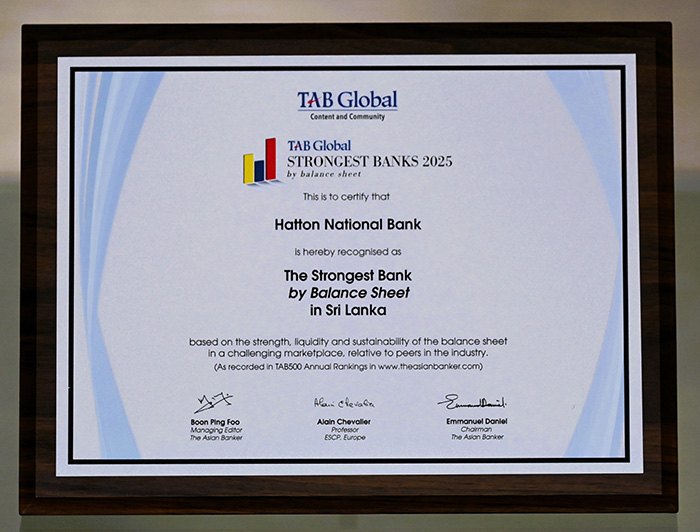
HNB PLC, the leading private bank in Sri Lanka, has been awarded the title of Strongest Bank in Sri Lanka for 2025 by TAB Global. The recognition was confirmed following the release of the TAB Global World’s 1000 Largest and Strongest Banks Rankings, with the announcement made recently
HNB’s Managing Director / CEO, Damith Pallewatte, stated that the accolade underscores the bank’s unwavering commitment to sustained financial strength and strategic resilience. “This honour shows the resilience and clarity of purpose that guide our institution. Our teams advanced through demanding cycles with discipline and accountability. The recognition confirms the trust placed in us by customers, investors and partners and it reinforces the duty we carry as a leading private bank. We remain fully committed to safeguarding long-term strength while contributing to Sri Lanka’s economic advancement with integrity and resolve.”
HNB achieves a landmark distinction in the 2025 rankings, establishing itself as Sri Lanka’s strongest bank. The assessment highlights HNB’s balance sheet quality, prudent risk discipline and the bank’s consistent ability to maintain stability through varied economic conditions. The ranking places HNB alongside leading global financial institutions acknowledged for sustained strength, institutional reliability and capacity to absorb external shocks.
Foo Boon Ping, President and Managing Editor at TAB Global, stated: “HNB demonstrated strong fundamentals and consistent delivery across multiple stress indicators. The bank’s performance placed it ahead of its domestic peers and aligned it with institutions recognised for structural strength. The ranking reflects measurable outcomes drawn from transparent criteria.”
-

 Features3 days ago
Features3 days agoFinally, Mahinda Yapa sets the record straight
-

 News5 days ago
News5 days agoOver 35,000 drug offenders nabbed in 36 days
-

 News4 days ago
News4 days agoCyclone Ditwah leaves Sri Lanka’s biodiversity in ruins: Top scientist warns of unseen ecological disaster
-

 Business7 days ago
Business7 days agoLOLC Finance Factoring powers business growth
-

 News7 days ago
News7 days agoCPC delegation meets JVP for talks on disaster response
-

 News7 days ago
News7 days agoA 6th Year Accolade: The Eternal Opulence of My Fair Lady
-

 News5 days ago
News5 days agoRising water level in Malwathu Oya triggers alert in Thanthirimale
-

 Features6 days ago
Features6 days agoThe Catastrophic Impact of Tropical Cyclone Ditwah on Sri Lanka:




